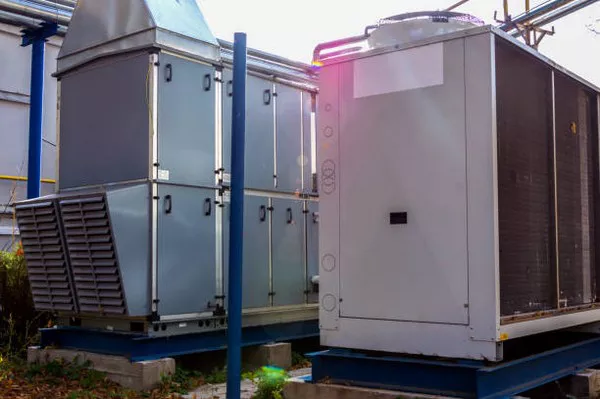Generators are invaluable tools that provide a reliable source of electrical power when traditional grid power is unavailable or unreliable. Whether you are preparing for emergencies, planning outdoor events, or working in remote locations, knowing what to power with a generator is essential. In this article, we will explore the various applications and considerations for using a generator, helping you make informed decisions about what to power and how to do so efficiently.
Emergency Backup Power
One of the most common uses for generators is as a backup power source during emergencies. When severe weather, natural disasters, or unexpected power outages strike, a generator can keep essential appliances and systems running, providing comfort and safety for your family. Here are some critical items to power during an emergency:
1. Lights: Illumination is crucial during power outages. Consider powering LED lights, flashlights, or lanterns to ensure visibility and safety.
2. Refrigerator and Freezer: Keeping your perishable food fresh is essential. A generator can maintain the operation of your refrigerator and freezer, preventing food spoilage.
3. Heating and Cooling Systems: Depending on the season, maintaining a comfortable indoor temperature is vital. A generator can power your furnace or air conditioning unit.
4. Medical Equipment: If you or a family member rely on medical devices such as oxygen concentrators, CPAP machines, or dialysis machines, a generator can be a lifesaver.
5. Communication Devices: Keeping communication channels open is essential during emergencies. Powering cell phones, radios, and chargers can help you stay informed and connected.
Construction Sites and Outdoor Work
Generators are indispensable tools on construction sites and outdoor work locations where access to grid power is limited or nonexistent. They can power a wide range of equipment, including:
1. Power Tools: Generators can operate electric drills, saws, grinders, and other power tools required for construction and maintenance work.
2. Welding Machines: For welding jobs in remote areas, generators can provide the necessary electrical power to operate welding machines.
3. Lighting: Illuminating work areas during nighttime or in poorly lit environments is essential for safety and productivity.
4. Electric Pumps: Construction sites often require water pumps for drainage or to provide a water source for workers.
Recreational and Outdoor Events
Generators are frequently used to power recreational and outdoor events, ranging from camping trips to music festivals. Here’s what you might consider powering in such scenarios:
1. Campsite Essentials: Generators can run camping stoves, coffee makers, and other small appliances, making outdoor adventures more comfortable.
2. RVs and Trailers: Many RVs and trailers have built-in generators or rely on portable generators to power appliances, lighting, and air conditioning.
3. Sound Systems and Lighting: Event organizers often use generators to power sound systems, stage lighting, and other equipment for concerts, festivals, and outdoor parties.
Home Improvement Projects
Home improvement projects often require additional power for various tools and equipment. Generators can be a valuable resource for DIY enthusiasts and professionals, helping power:
1. Electric Saws and Drills: When cutting, shaping, or drilling materials, generators provide the necessary electricity to operate these power tools.
2. Air Compressors: Painting, sanding, or inflating tires often requires air compressors, which can be powered by generators.
3. Backup for Power Tools: If your workshop is in a location with an unreliable power supply, a generator can ensure that your tools are always ready for use.
Agriculture and Farming
Generators play a vital role in agriculture and farming, where electrical power is essential for various applications:
1. Irrigation Systems: Farming often requires irrigation to ensure crop growth. Generators can power water pumps and irrigation systems, especially in rural areas.
2. Grain Dryers: To prevent spoilage and maintain the quality of harvested crops, grain dryers need a reliable source of power.
3. Electric Fencing: Electric fencing is used to secure livestock. Generators can ensure that these fences remain active.
4. Livestock Housing: Providing electrical heating, lighting, and ventilation to livestock housing facilities is crucial for animal welfare.
Selecting the Right Generator
Choosing the right generator for your specific needs is essential to ensure efficient and reliable power. Consider the following factors when selecting a generator:
1. Power Output: Determine the wattage requirements of the appliances and equipment you intend to power simultaneously. Generators come in various sizes, and selecting one with sufficient wattage capacity is crucial.
2. Fuel Type: Generators can be powered by gasoline, diesel, propane, or natural gas. Choose a fuel type that aligns with your availability and preferences.
3. Portability: If you plan to use the generator in multiple locations or for outdoor events, consider a portable generator with wheels and handles for easy transport.
4. Noise Level: Noise can be a concern, especially for residential use and outdoor events. Look for generators with lower noise ratings if noise is a consideration.
5. Runtime: Evaluate how long you need the generator to run continuously. Some generators have longer runtimes than others, and you may need to refuel them less frequently.
Conclusion
Generators are versatile tools that can power a wide range of applications, from essential appliances during emergencies to construction equipment, outdoor events, and agricultural operations. Choosing the right generator and understanding what to power with it is crucial for ensuring efficiency, safety, and convenience. By considering your specific needs and the factors discussed in this article, you can make informed decisions and maximize the utility of your generator in various situations. Remember to prioritize safety and proper maintenance to ensure the longevity and reliable performance of your generator.

